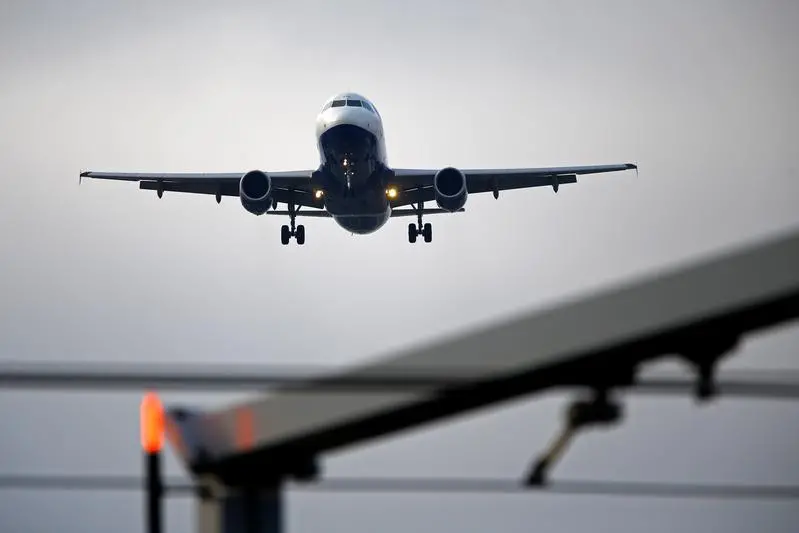PHOTO
Middle East’s passenger numbers plummeted by nearly half in March, the most disastrous month so far for the aviation business, the International Air Transport Association (IATA) said Wednesday.
Figures released by IATA showed that air traffic in the region, measured in total revenue passenger kilometers (RPK) plummeted 45.9 percent last month compared to the same period a year ago, reversing a 1.6 percent increase in February. Capacity also fell 33.5 percent and load factor dropped 13.7 percentage points to 59.9 percent.
The air transport body warned of further declines, citing that the fall in passenger volumes hasn’t hit the floor yet.
“The industry is in free fall and we have not hit bottom. But there will come a time - soon, I hope - when authorities will be ready to begin easing restrictions on mobility and opening borders,” said Alexandre de Juniac, IAT’s director general and CEO.
Late last month, the UAE government ordered the suspension of all inbound, outbound and transit flights, with the exception of repatriation trips for stranded tourists and returning expatriate workers.
The authorities have not yet announced the lifting of border restrictions, although the country’s airlines are preparing for the resumption of services. Dubai Airports, the operator of Dubai International and Al Maktoum International, had said that they are getting ready for the gradual resumption of operations.
The coronavirus pandemic has forced many countries around the world to close their borders and suspend flight services. The lockdowns are hitting the aviation businesses the most, with revenue losses for Middle East carriers alone estimated to reach $24 billion this year.
The impact in other aviation markets is worse, with Asia-Pacific airlines registering a 65.5 percent drop in passenger traffic last month, more than double the 30.7 percent decline in February.
European carriers saw passenger demand fall 54.3 percent, while those in North America and Latin America posted declines of 53.7 percent and 45.9 percent, respectively.
Overall, international passenger demand shrank 52.9 percent globally, the largest decline in recent history and reflecting the impact of government measures to contain the spread of coronavirus.
“March was a disastrous month for aviation. Airlines progressively felt the growing impact of the COVID-19 related border closings and restrictions on mobility, including in domestic markets,” Juniac said.
Airlines in the UAE have not fixed the dates for the resumption of regular travel, although some of them have increased the operation of special repatriation flights and experienced a surge in demand for cargo services.
(Writing by Cleofe Maceda; editing by Seban Scaria)
#Travel #Aviation #IATA #MiddleEast #Transport
Disclaimer: This article is provided for informational purposes only. The content does not provide tax, legal or investment advice or opinion regarding the suitability, value or profitability of any particular security, portfolio or investment strategy. Read our full disclaimer policy here.
© ZAWYA 2020





















